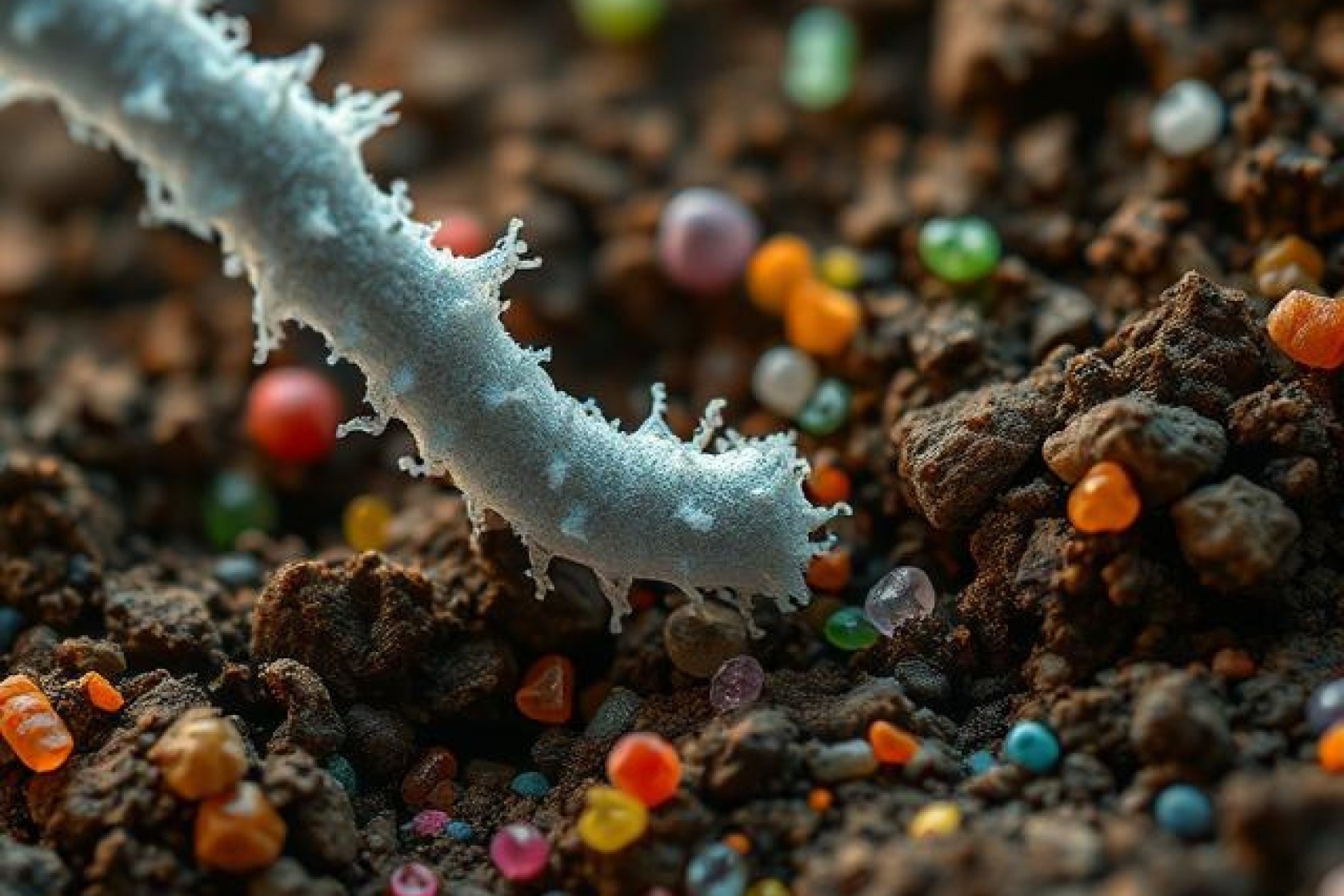Biodegradation of polypropylene microplastics by Bacillus pasteurii isolated from a gold mine tailing
Research shows that bacteria can aid in the biodegradation of microplastics in soils and that the result can be boosted with microbially induced calcium carbonate precipitation.

 Microplastics (MPs) are persistent pollutants formed from plastic degradation, with significant environmental impacts, particularly in soil ecosystems. Despite more MPs entering terrestrial environments than oceans, research on their biodegradation in soil remains limited. Certain microorganisms, including fungi and bacteria, have shown potential in breaking down MPs, though degradation rates vary by plastic type. This study explores the use of bacteria Bacillus pasteurii in combination with the microbially induced calcium carbonate precipitation (MICP is a technique that uses the metabolic action of microorganisms to produce CO32- which combines with free Ca2+ to form CaCO3 precipitation) technique to enhance MP degradation, aiming to provide insights for soil pollution management.
Microplastics (MPs) are persistent pollutants formed from plastic degradation, with significant environmental impacts, particularly in soil ecosystems. Despite more MPs entering terrestrial environments than oceans, research on their biodegradation in soil remains limited. Certain microorganisms, including fungi and bacteria, have shown potential in breaking down MPs, though degradation rates vary by plastic type. This study explores the use of bacteria Bacillus pasteurii in combination with the microbially induced calcium carbonate precipitation (MICP is a technique that uses the metabolic action of microorganisms to produce CO32- which combines with free Ca2+ to form CaCO3 precipitation) technique to enhance MP degradation, aiming to provide insights for soil pollution management.
The study analyzed the biodegradation of polypropylene microplastic under different treatments, i.e. T1 = control group without bacterial treatment, T2 = bacterial treatment, T3 = a combination of bacterial treatment and MICP.
Polypropylene microplastics (PP-MP’s) were found to degrade into smaller particles after treatment, with the intensive bacterial treatment or a combination of B. Pasteurii and MICP group showing the most significant degradation. The addition of bacterial agents and Ca2+ induced MICP facilitated the degradation of MPs through adsorption and coprecipitation. Scanning electron microscopy and water contact angle measurements confirmed that this group exhibited significant changes in surface morphology and reduced hydrophobicity, which enhanced microbial adhesion and promoted further MP degradation.
MP pollution disrupts soil biodiversity by inhibiting microbial growth, but the addition of bacterial agents, such as Bacillus sp., improves soil microbial community structure. In groups treated with bacterial agents, the microbial community became more diverse, which thrive in nutrient-rich environments created by MP degradation.
These findings suggest that B. pasteurii-mediated degradation of PP-MPs is effective, though further research is needed to fully understand the degradation mechanism.
The study “Biodegradation of polypropylene microplastics by Bacillus pasteurii isolated from a gold mine tailing” by Z. Wang et al.is published in Emerging Contaminants.
Share this post!





